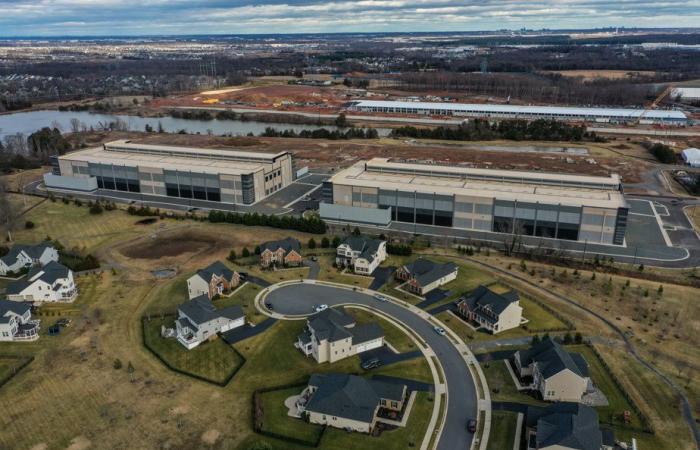It’s heavy. It weighs on your wallet. And it could increase by 2050. Because the internet is obese. And we feed him a little more every day.
Published at 8:00 a.m.
The HTTParchive site bears witness to this. In 2012, to load an entire web page on your personal computer’s browser, you had to download an average of 803 kilobytes (KB) of computer data. The same page in mobile version required on average to download 386 KB of data. This includes the HTML code and all content necessary for the page to display in full, including images and advertising.
Ten years later, the average size of a web page reached 2284 KB in its desktop version, and 2010 KB in its mobile version.
In ten years, when she was aged 21 to 31, the Web saw its average weight multiply by three, in the desktop version, and by five, in the mobile version.
The HTTParchive site focused its calculations on the most visited sites on the Web. This includes the Google homepage and the web versions of Facebook, YouTube, Wikipedia, Instagram, TikTok and the Reddit forum. These seven sites, incidentally, make up the majority of the list of the ten most visited websites on the planet these days.
In other words, the Internet is gaining weight. With artificial intelligence (AI), 4K video, and more, it’s getting bigger all the time.
High speed
Anyone who pays an internet service provider to access the network pays the fees. Since the web went public in 1991, the most common thing people have asked for is for sites to load faster and faster.
It is not for nothing that the algorithm of search engines like Google attaches great importance to the weight of web pages. The heavier they weigh, the less quickly they charge, and Internet users start to complain. In the digital marketing industry, an oft-cited rule is that a web page must load in 3 seconds or less, otherwise people will look elsewhere.
In 2012, the average web page load time was 6 seconds on a desktop computer and 3.5 seconds on a mobile device. By 2024, these times have increased to 2.5 and 8.6 seconds, respectively.
Yes, sites now take longer to load on mobile than on desktop.
That said, sites with rich media content take longer to load, at 5.5 seconds on average. Shopping sites load in 6 seconds on average.
This desire for immediacy among Internet users naturally pushes them to demand better access to the Internet. We only need to remember how universal access to high-speed internet became a serious political issue across Canada from 2020 to 2022, during the COVID-19 pandemic. The Internet itself is no longer enough; high speed is needed to satisfy consumers as well as professionals and traders.
To load ever heavier web pages ever faster, bandwidth must always be more generous and faster. Internet service providers are rubbing their hands: they have very little to do to convince their customers to upgrade to a more expensive broadband plan.
If web pages had retained their weight of 12 years ago, undoubtedly a lower speed Internet connection, and therefore significantly more affordable, would be sufficient. Both at home and on your mobile.
This would mean so much money saved by consumers.
On the way to 2050
The overweight of the Internet also has an environmental impact. Experts calculate that the internet currently produces the equivalent of 8% of global greenhouse gas emissions from human activity. That’s double from four years ago!
Obviously, the emergence of AI, which is extremely energy-intensive, has something to do with it. But this goes against the decarbonization promises of the digital giants. And reducing that footprint is going to be expensive.
This is why companies like Google, Amazon and Microsoft are these days turning to nuclear power to power their data centers: this is an abundant energy source with low GHG emissions.
Right now, the digital industry has no decarbonization plans, only individual targets set by a few high-profile companies.
And that, too, is a problem. If nothing is done, the internet will be among the biggest polluters in 2050.
This is a problem with serious consequences.






